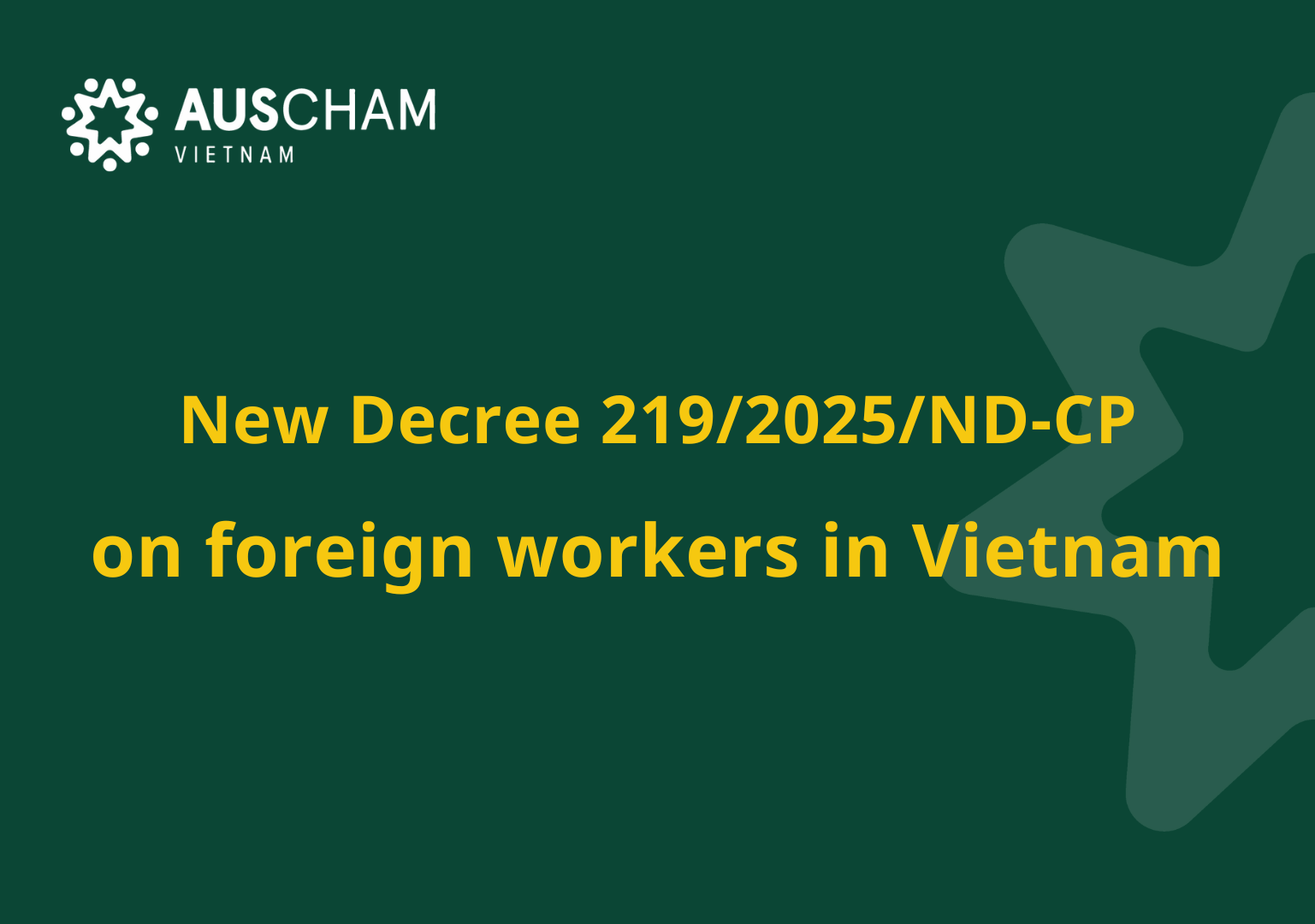New Government Decree 219/2025 Streamlines Foreign Worker Regulations in Vietnam

Hanoi, August 07, 2025 – The Vietnamese Government has issued Decree No. 219/2025/ND-CP, effective August 7, 2025, introducing substantial revisions to the country’s legal framework governing foreign workers.
Streamlined Application Process & Tighter Timelines
Under the new decree, the requirement to separately report demand for foreign labour has been consolidated into the standard work permit application process. Employers are now required to submit Form No. 03, a written request explaining their need to hire a foreign worker, as part of the application dossier.
Authorities are mandated to assess the application and make a decision within 10 working days of receiving a complete dossier. Should the permit be denied, the authority must issue a written explanation within 3 working days.
Decentralized Authority in Permit Issuance
The decree clarifies that provincial-level People’s Committees are now the primary bodies responsible for issuing, reissuing, extending, and revoking work permits. This represents a shift from the previous system where the Ministry or relevant provincial Departments held this authority.
For employers operating across multiple provinces, the authority of the Committee in the province where the head office is registered applies. In some cases, these responsibilities may be delegated to lower-level agencies.
Expanded Exemptions for Foreign Workers
Decree 219 broadens the list of foreign workers exempt from work permit requirements, especially targeting those in high-priority sectors. Newly exempted groups include those certified to work in finance, science, technology, innovation, national digital transformation, and other sectors vital to Vietnam’s socio-economic development.
The decree also maintains existing exemption categories, such as:
Owners or Board members with capital contributions ≥ VND 3 billion
Foreign journalists accredited by the Ministry of Foreign Affairs
Experts assigned to ODA-funded projects (e.g., research, monitoring, consultancy)
Foreign students, interns, volunteers, and diplomatic dependents under certain conditions.
Implications for AusCham Members
Faster Turnaround: Employers can anticipate improved processing times and clearer timelines under the streamlined application process.
Local Administration: Navigating permits will now involve dealing primarily with provincial authorities—this may enable more localized strategies and faster responsiveness.
Targeted Talent Attraction: Expanded exemptions, especially for roles in digital transformation and high-tech sectors, make it easier to attract and deploy specialized foreign professionals.
Should you require any further assistance, please contact AusCham Head of Advocacy & Partnerships at advocacy@auschamvn.org
